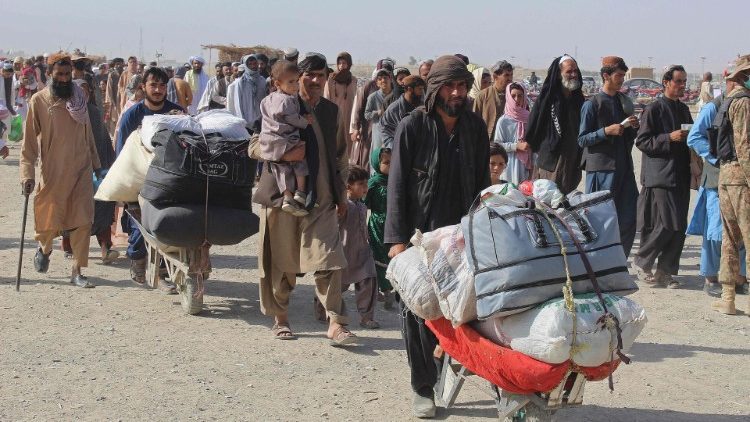Islamabad, Pakistan, November 02: On Pakistan’s northwest border with Afghanistan, many Afghans are rushing to leave as Pakistan’s deadline for undocumented foreigners to exit the country has passed. Over 1.7 million Afghan refugees are now uncertain about their future – leave or face arrest and deportation.
Approximately 1.7 million Afghans now face an uncertain future, as they must either leave Pakistan or face arrest and forcible expulsion. This ultimatum was issued by the Pakistani government one month ago, and it has stirred controversy on the international stage.
In contrast, the Taliban administration in Kabul claims to have set up temporary transit camps to provide food and medical assistance. However, relief agencies are warning of an impending humanitarian crisis in the region.
The Pakistani government has defended its actions, asserting that Afghans residing in the country have been involved in militant attacks, and criminal activities, and pose a threat to Pakistan’s internal security.
Despite calls from the United Nations, human rights groups, and Western countries to reconsider the expulsion policy, Pakistan has remained resolute in its stance.
According to a report by Reuters, over 24,000 Afghans crossed into Afghanistan using the Torkham border crossing, located at the northwestern end of the historic Khyber Pass, on the road connecting Peshawar in Pakistan and Jalalabad in Afghanistan on Wednesday alone.
Notably, Pakistan has restricted media access to the Torkham crossing since Tuesday.
Authorities have been working tirelessly, with a camp established near the crossing to facilitate the process.
An estimated 128,000 Afghans have already left via the border crossing since the Pakistani government issued its directive. Additional crossings are occurring at Chaman, situated in Pakistan’s southwestern province of Balochistan.
Origins of Pakistan’s Leave Order
On October 3, Pakistan’s Interior Ministry made a significant announcement, giving all migrants residing without legal status in the country 28 days to leave voluntarily or face deportation.
Caretaker Interior Minister Sarfraz Bugti emphasized that “all foreign nationals living illegally in the country have been given until November 1 to leave voluntarily or face deportation.”
Although the government asserted that the action was directed at all illegal migrants, it is well established that it is primarily targeting Afghan nationals.
The government cited a surge in terrorist attacks on Pakistani soil as the rationale behind this move. The Pakistani authorities claimed that 14 out of 24 suicide bombings in the nation this year were perpetrated by Afghan nationals.
Bugti stated that the Afghan nationals residing in Pakistan lacked the necessary legal documentation, with a total of 4.4 million Afghan refugees currently residing in Pakistan. He asserted, “These are not just opinions that we are attacked from within Afghanistan, and Afghan nationals are involved in attacks on us. We have evidence”.
Taliban called it “Inhumane”, “Unacceptable”
Taliban strongly condemned the Pakistani government’s actions and issued a stern warning, suggesting that they may take action if the expulsion of immigrants is not halted. Deputy Minister of Foreign Affairs of the Taliban administration, Shir Mohammad Abbas Stanikzai, stressed that the Pakistani government must reconsider its stance on expelling immigrants, as reported by Khaama Press.
Taliban spokesperson, Zabihullah Mujahid last month stated that “the behavior of Pakistan towards Afghan refugees is “unacceptable“. Afghan refugees are not involved in Pakistan’s security problems. As long as they leave Pakistan voluntarily, that country should tolerate them, but forced eviction will not be accepted”.
A decision to depart 1.73 million Afghan refugees from Pakistan has not only escalated tensions with Afghanistan but has also created another humanitarian crisis in an already war-torn and unstable region.






